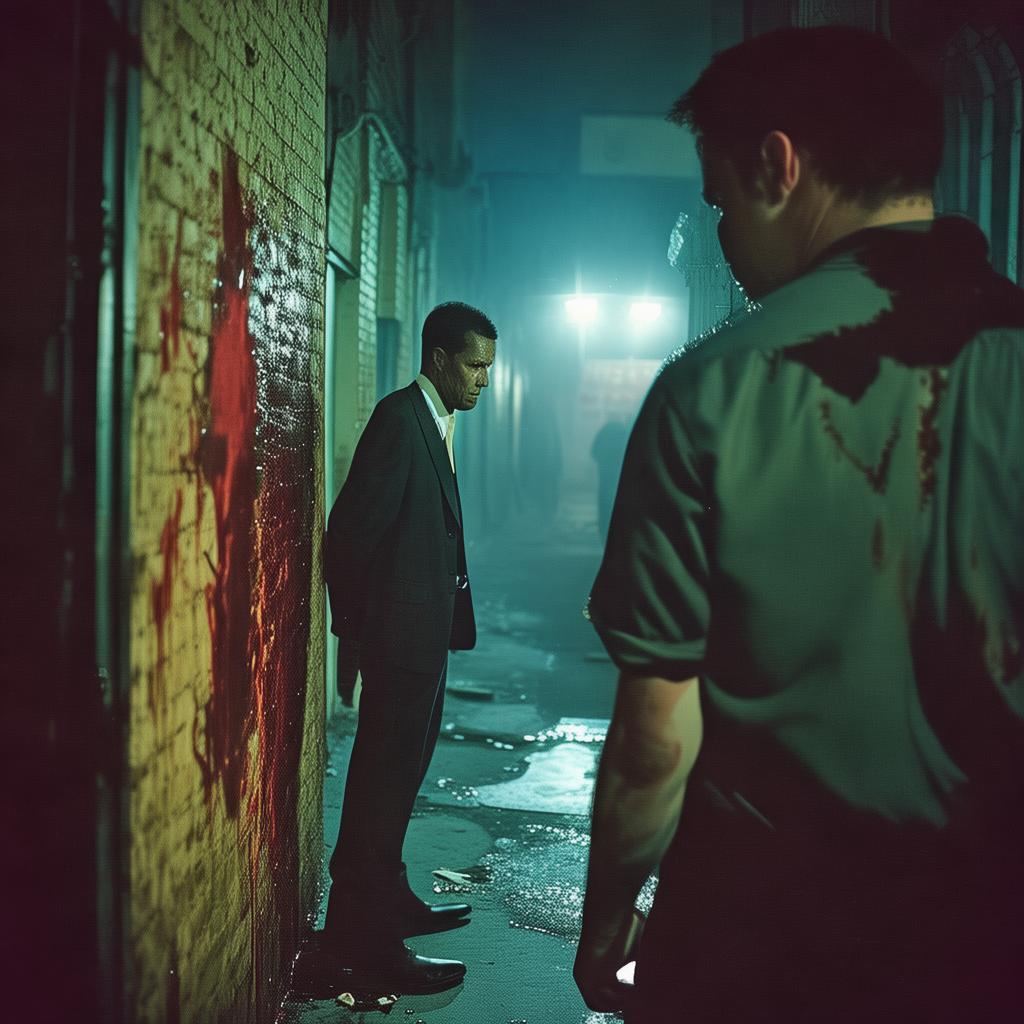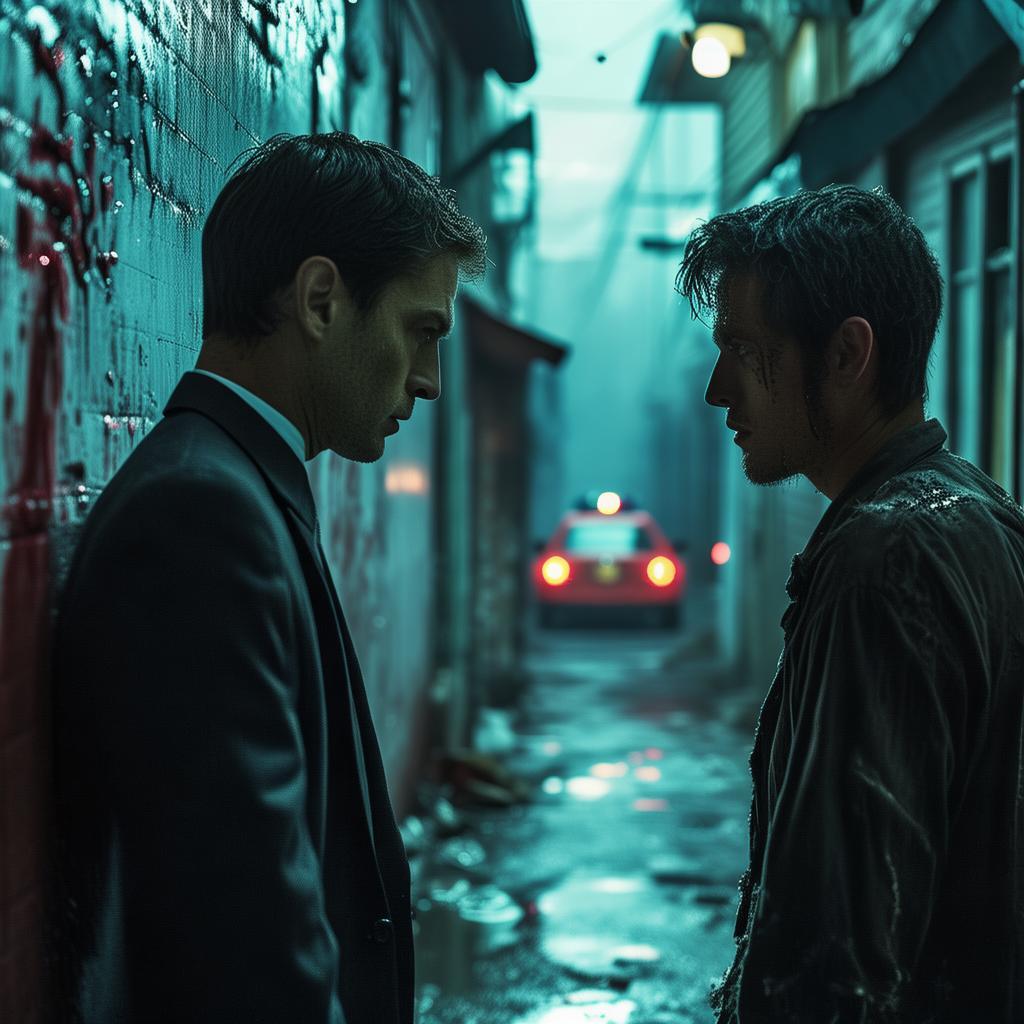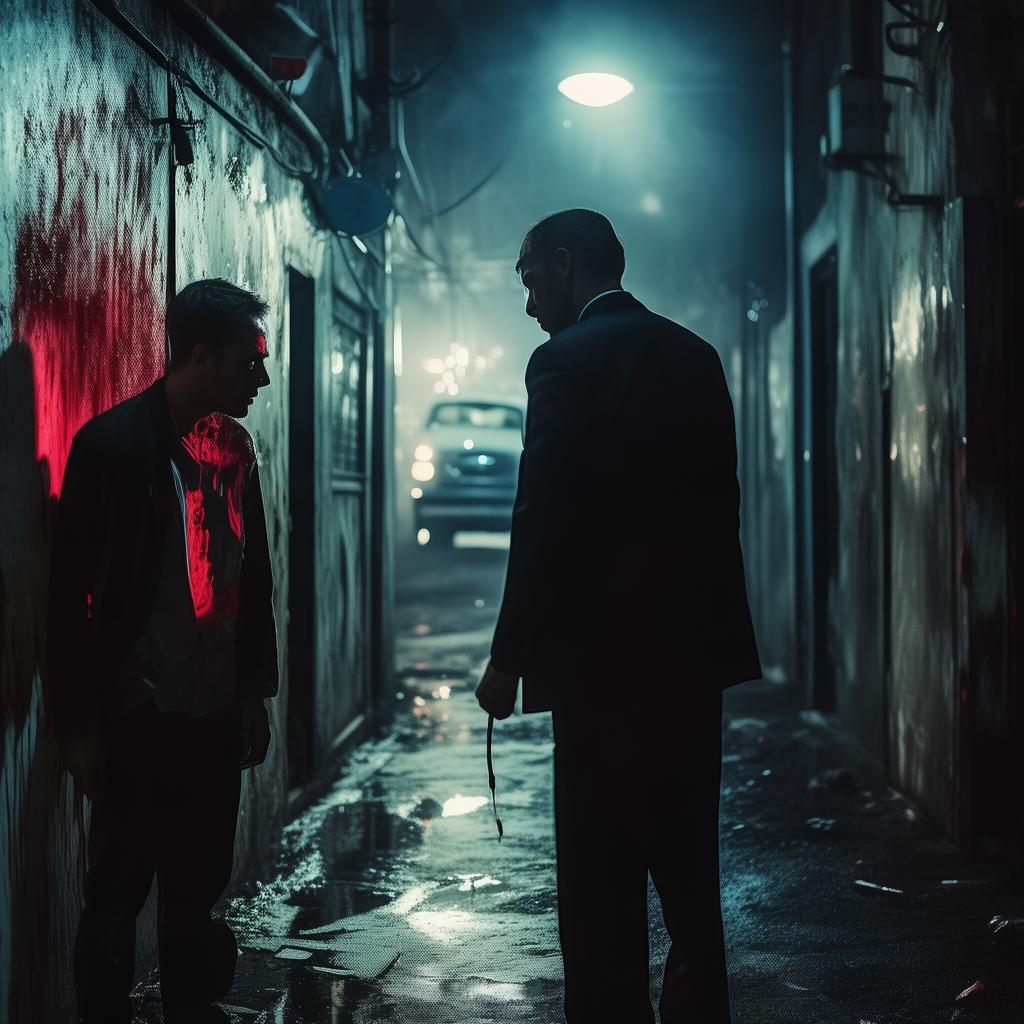Whispers of Betrayal: The Shadow of the Philosopher's Death
In the heart of Dongbang, a town known for its academic rigor and intellectual fervor, the body of Dr. Liang, a prominent philosopher, was found in his study, his eyes wide with shock, his mouth frozen in a silent scream. The town was in an uproar. Dr. Liang was not just any philosopher; he was the heart of Dongbang's intellectual life, a beacon of wisdom and reason. His sudden death left the town in a state of shock and disbelief.
Detective Qiao, a man of few words and deeper thoughts, was called to the scene. He had a reputation for solving the most complex cases with a philosophical twist. The death of Dr. Liang was no exception. The police had ruled it a suicide, but something about the scene felt off. The window was closed, the door locked, and no signs of forced entry. Yet, there was a sense that the philosopher had been taken by surprise, as if he had been ambushed from within.
As Detective Qiao examined the room, he found a single, unopened letter addressed to him. It contained only a single sentence: "The truth is not what it seems." This cryptic message intrigued Qiao, who knew Dr. Liang's work well. He decided to visit the philosopher's home.
Dr. Liang's home was a sanctuary of books, filled with the scent of aged paper and the quiet hum of contemplation. The study was a room of solitude, where Dr. Liang had spent countless hours pondering the great questions of existence. Qiao sat in the philosopher's chair, feeling the weight of the man's thoughts pressing down upon him.
He pondered the letter. The truth was not what it seemed. This was a familiar refrain in Dr. Liang's work. Qiao knew that the philosopher had been working on a groundbreaking theory that threatened to shake the foundations of Dongbang's intellectual elite. Could this theory have led to his death?

As Qiao delved deeper into the case, he uncovered a network of deceit and ambition. Dr. Liang's closest colleagues were under suspicion, each with their own motives. There was Professor Zhang, who had always envied Dr. Liang's influence; there was Dr. Wang, who had once been a protege of Dr. Liang's and now found himself overshadowed; and there was Dr. Chen, who had a personal vendetta against the philosopher.
Qiao interviewed each suspect, searching for inconsistencies in their stories. Professor Zhang spoke of his devotion to Dr. Liang's work but couldn't explain the late-night visits to the philosopher's house. Dr. Wang spoke of his admiration but admitted to having a falling out with Dr. Liang over the latter's theory. Dr. Chen, on the other hand, was openly hostile, but Qiao couldn't find any concrete evidence against him.
The case grew increasingly complex. Qiao realized that he had to piece together the puzzle of Dr. Liang's life and work to understand the motive behind his death. He visited the libraries, poring over the philosopher's manuscripts and lectures. In one of his papers, he found a reference to an ancient text that seemed to hint at a hidden truth.
The ancient text spoke of a secret society of thinkers, a group that had been active in Dongbang for centuries. The society was said to have protected the truth at any cost, even if it meant sacrificing their own. Could this society be behind Dr. Liang's death?
Qiao's investigation led him to a hidden chamber beneath the library, where he found evidence of the secret society's existence. He discovered that Dr. Liang had uncovered the society's secrets and was on the brink of exposing them. This revelation explained the philosopher's shock and fear at the time of his death.
With this knowledge, Qiao knew that the real killer was someone deeply connected to the secret society. He tracked down the society's leader, a man who had once been a friend of Dr. Liang. The leader, in a fit of rage, had ordered the philosopher's death to protect the society's secrets.
The trial was a spectacle, with the entire town gathered to see justice served. The leader was convicted and sentenced to life in prison. Dr. Liang's legacy, however, remained intact. His theory, now known as the Dongbang Dilemma, had become a cornerstone of modern philosophy.
Detective Qiao walked away from the trial, satisfied but haunted by the case. He knew that the truth was often a complex tapestry of lies and secrets. In Dongbang, he had faced the shadow of betrayal and emerged with the knowledge that some truths were too dangerous to be revealed.
As Qiao returned to his office, he couldn't help but think of the philosopher's final words: "The truth is not what it seems." He realized that in the pursuit of truth, one must always question everything, even the most obvious explanations.
In the quiet of his office, Qiao sat down to write a report on the case. He knew that the story of Dr. Liang's death would be a reminder to all that the pursuit of knowledge could be a dangerous path, but it was one worth walking.
✨ Original Statement ✨
All articles published on this website (including but not limited to text, images, videos, and other content) are original or authorized for reposting and are protected by relevant laws. Without the explicit written permission of this website, no individual or organization may copy, modify, repost, or use the content for commercial purposes.
If you need to quote or cooperate, please contact this site for authorization. We reserve the right to pursue legal responsibility for any unauthorized use.
Hereby declared.









